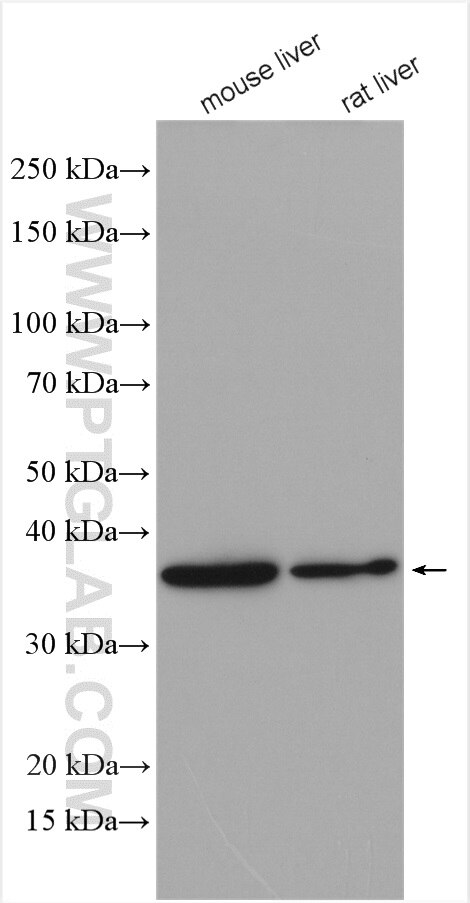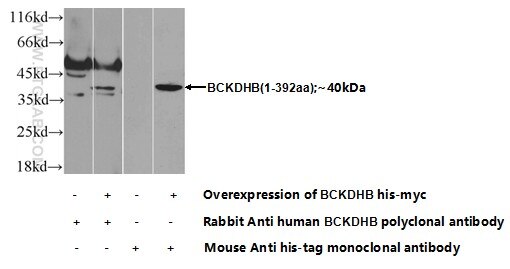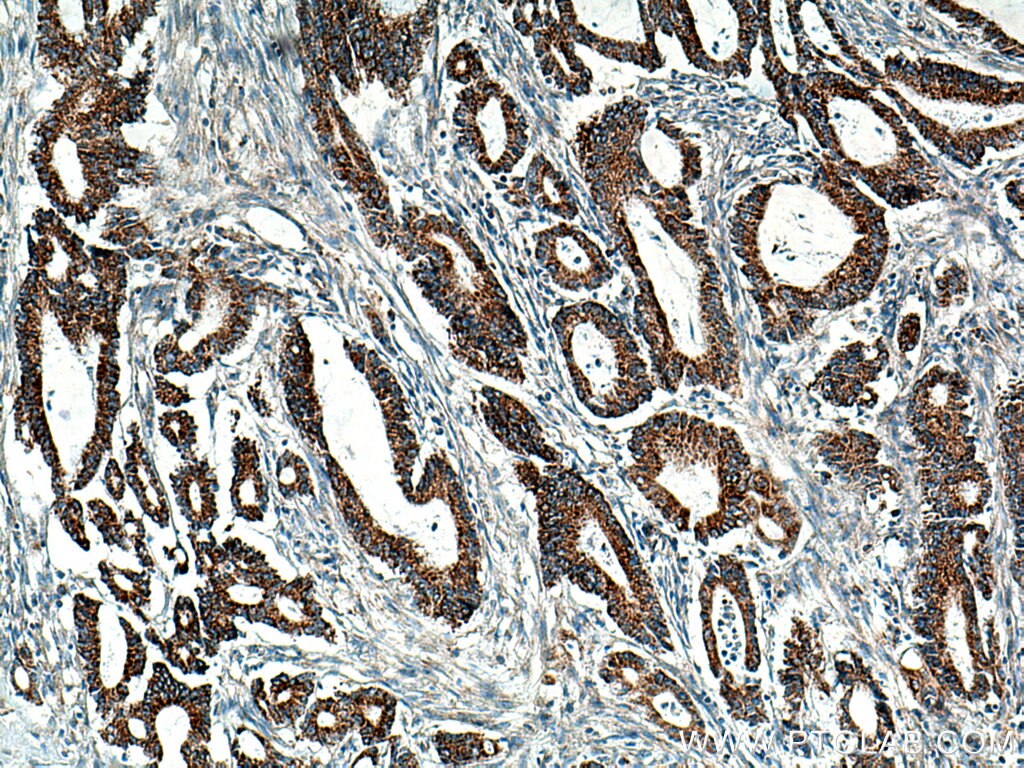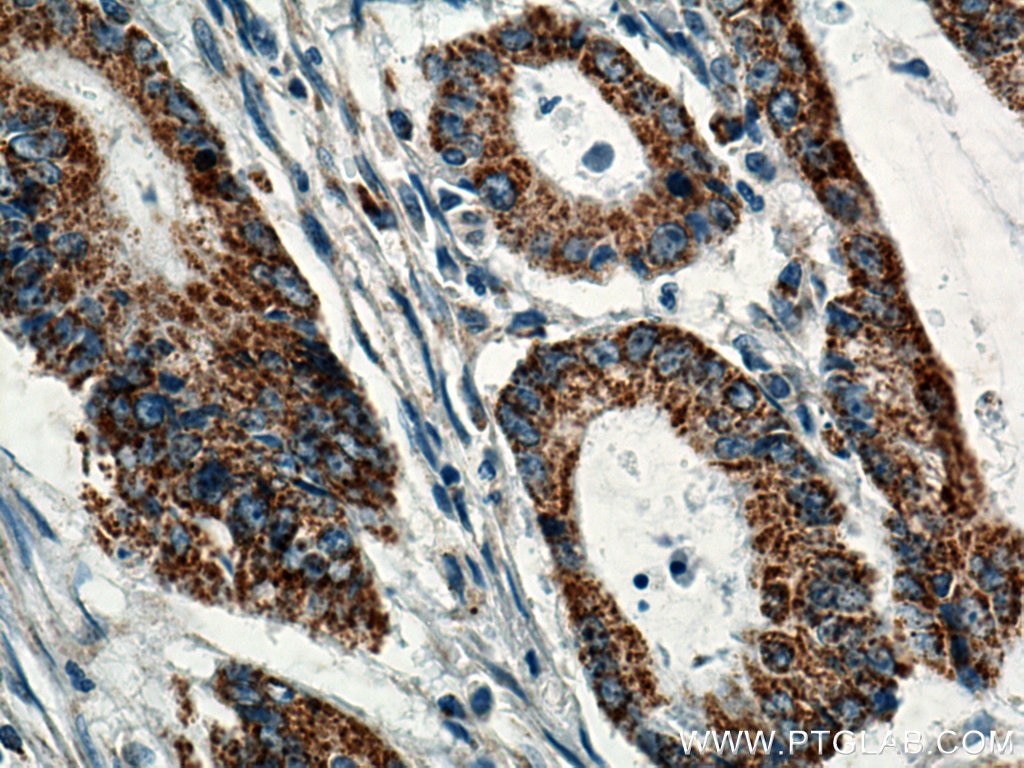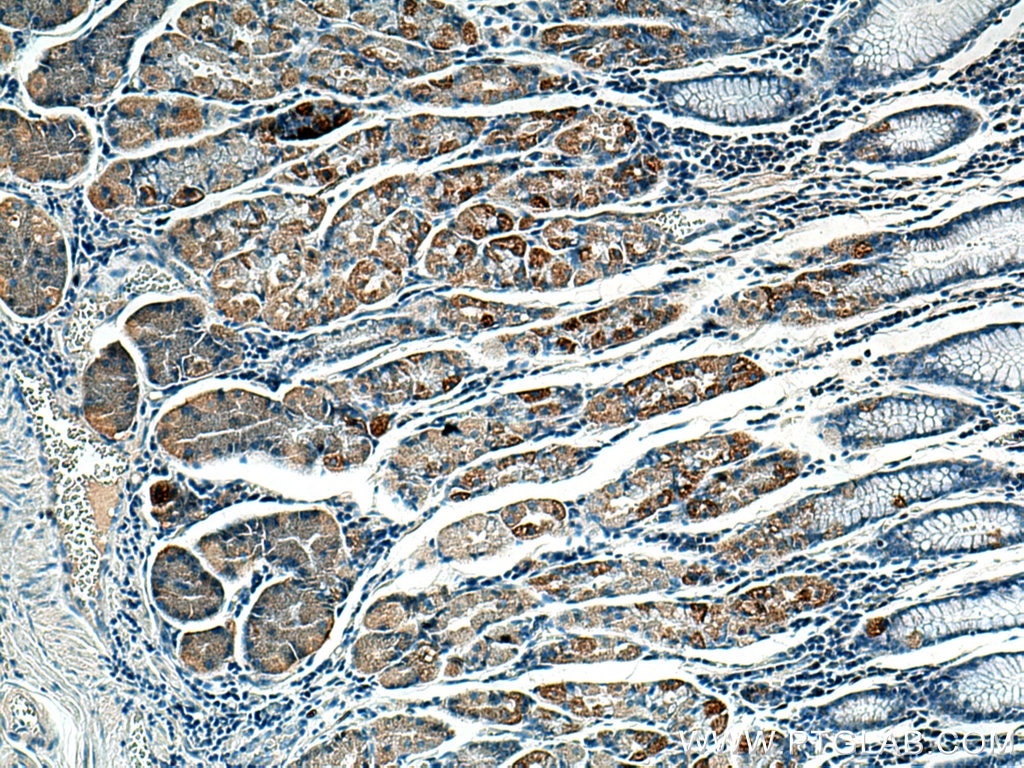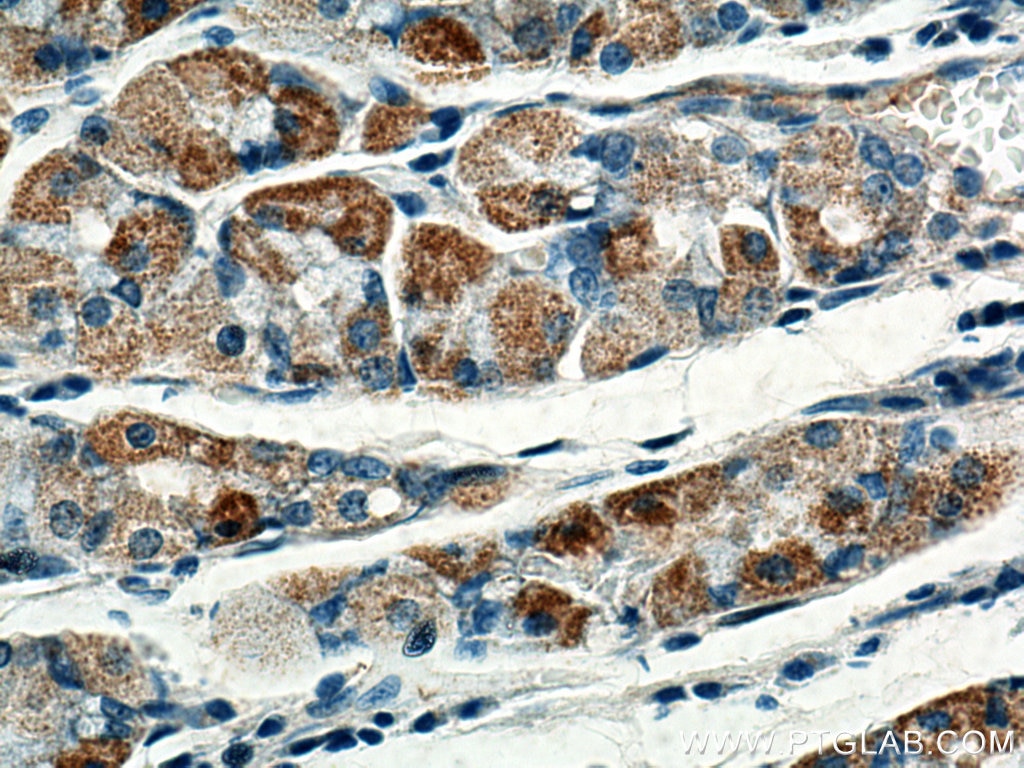Anticorps Polyclonal de lapin anti-BCKDHB
BCKDHB Polyclonal Antibody for WB, IHC, ELISA
Hôte / Isotype
Lapin / IgG
Réactivité testée
Humain, rat, souris
Applications
WB, IHC, RIP, ELISA
Conjugaison
Non conjugué
N° de cat : 13685-1-AP
Synonymes
Galerie de données de validation
Applications testées
| Résultats positifs en WB | tissu hépatique de souris, cellules HEK-293 transfectées, tissu hépatique de rat |
| Résultats positifs en IHC | tissu de cancer du côlon humain, tissu d'estomac humain il est suggéré de démasquer l'antigène avec un tampon de TE buffer pH 9.0; (*) À défaut, 'le démasquage de l'antigène peut être 'effectué avec un tampon citrate pH 6,0. |
Dilution recommandée
| Application | Dilution |
|---|---|
| Western Blot (WB) | WB : 1:500-1:2000 |
| Immunohistochimie (IHC) | IHC : 1:50-1:500 |
| It is recommended that this reagent should be titrated in each testing system to obtain optimal results. | |
| Sample-dependent, check data in validation data gallery | |
Applications publiées
| WB | See 8 publications below |
| IHC | See 4 publications below |
| RIP | See 1 publications below |
Informations sur le produit
13685-1-AP cible BCKDHB dans les applications de WB, IHC, RIP, ELISA et montre une réactivité avec des échantillons Humain, rat, souris
| Réactivité | Humain, rat, souris |
| Réactivité citée | Humain, souris |
| Hôte / Isotype | Lapin / IgG |
| Clonalité | Polyclonal |
| Type | Anticorps |
| Immunogène | BCKDHB Protéine recombinante Ag4552 |
| Nom complet | branched chain keto acid dehydrogenase E1, beta polypeptide |
| Masse moléculaire calculée | 392 aa, 43 kDa |
| Poids moléculaire observé | 37 kDa |
| Numéro d’acquisition GenBank | BC040139 |
| Symbole du gène | BCKDHB |
| Identification du gène (NCBI) | 594 |
| Conjugaison | Non conjugué |
| Forme | Liquide |
| Méthode de purification | Purification par affinité contre l'antigène |
| Tampon de stockage | PBS with 0.02% sodium azide and 50% glycerol |
| Conditions de stockage | Stocker à -20°C. Stable pendant un an après l'expédition. L'aliquotage n'est pas nécessaire pour le stockage à -20oC Les 20ul contiennent 0,1% de BSA. |
Informations générales
Branched-chain alpha-keto acid dehydrogenase E1 component beta chain (BCKDHB; BCKDE1B; BCKDH E1-beta) is a subunit of the BCKDH complex, which is a mitochondrial enzyme in the degradation pathway for branched-chain amino acids (BCAA). Together with BCKDHA, BCKDHB forms the E1 subunit of this complex, whereas DBT and DLD are the E2 and E3 subunits, respectively. A deficiency of the BCKDH complex in humans causes maple syrup urine disease (MSUD), a severe neurometabolic disorder diagnosed by the detection alloisoleucine in plasma (MIM 248600). (PMID: 30709776)
Protocole
| Product Specific Protocols | |
|---|---|
| WB protocol for BCKDHB antibody 13685-1-AP | Download protocol |
| IHC protocol for BCKDHB antibody 13685-1-AP | Download protocol |
| Standard Protocols | |
|---|---|
| Click here to view our Standard Protocols |
Publications
| Species | Application | Title |
|---|---|---|
Nat Cancer Integrative proteogenomic profiling of high-risk prostate cancer samples from Chinese patients indicates metabolic vulnerabilities and diagnostic biomarkers | ||
Sci Transl Med BCKDHA-BCKDHB digenic gene therapy restores metabolic homeostasis in two mouse models and a calf with classic maple syrup urine disease | ||
Anim Sci J MiR-330-5p negatively regulates ovine preadipocyte differentiation by targeting branched-chain aminotransferase 2. | ||
Cell Rep SIRT4 is an early regulator of branched-chain amino acid catabolism that promotes adipogenesis. | ||
Cell Rep Branched-chain amino acid catabolism breaks glutamine addiction to sustain hepatocellular carcinoma progression | ||
Nat Commun AMPK induces degradation of the transcriptional repressor PROX1 impairing branched amino acid metabolism and tumourigenesis |
Avis
The reviews below have been submitted by verified Proteintech customers who received an incentive for providing their feedback.
FH Emilie (Verified Customer) (09-24-2025) | Robust signal at 1:1000. Consistent and reliable WB results.
|
